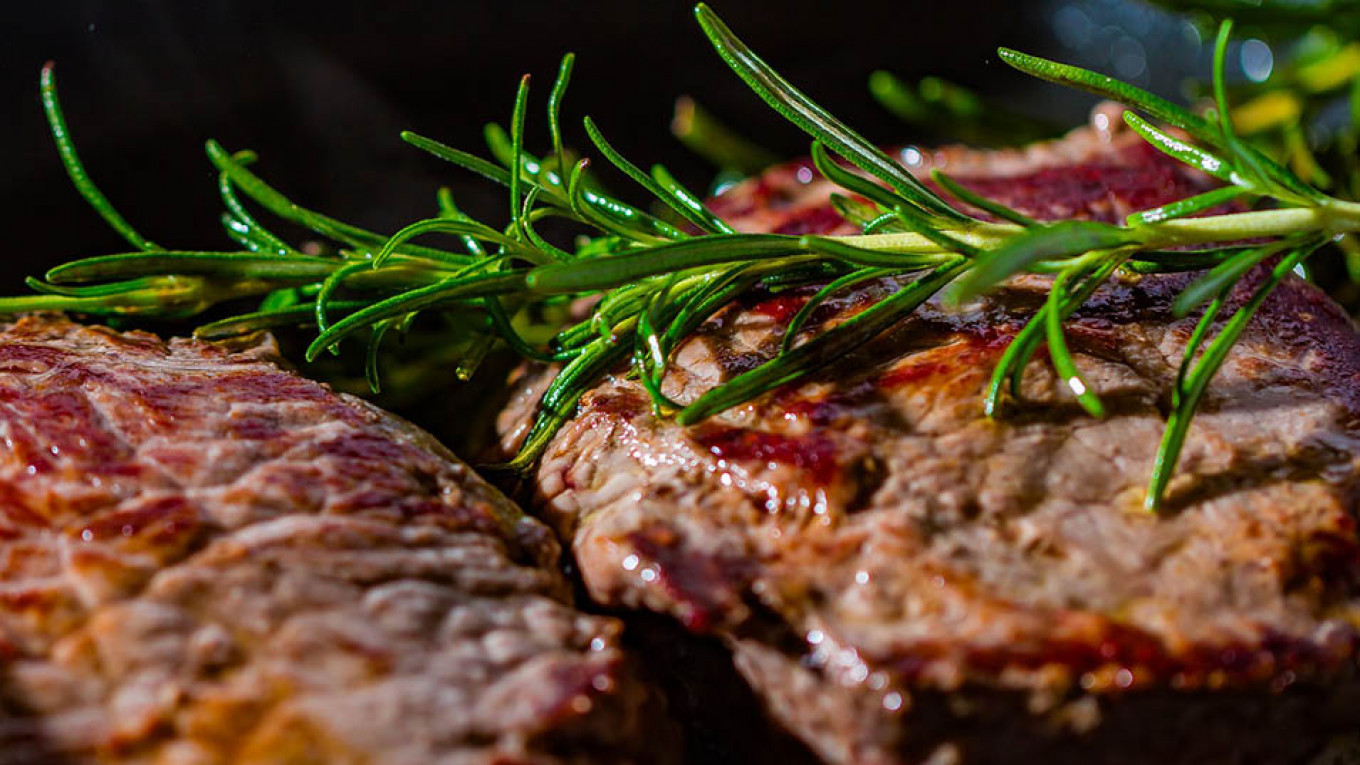
A Russian lab says it has produced the country’s first artificially grown piece of meat, opening up possibilities for a sustainable alternative to traditional meat products for the country’s consumers.
The idea of “cultivating” meat in labs using in vitro animal cells has gained worldwide popularity over the past several years as a more ethical and environmentally sound way for people to eat meat without resorting to plant-based meat substitutes. The United Nations has said that livestock accounts for 14.5% of greenhouse gas emissions.
The Ochakov Food Ingredients Plant (OKPI) produced a 40-gram “meatloaf” after three experiments carried out over two years, the Moscow-based lab said in a press release cited by Interfax.
“From our point of view, laboratory meat production has the highest ethical significance for modern society, since we can avoid the slaughter of living creatures to obtain meat for food,” Nikolai Shimanovsky, a molecular pharmacologist and the project’s curator, said in the press release.
The meat, which was grown using the muscle tissue of an Aberdeen Angus calf, cost 900,000 rubles ($14,000) to produce, the lab said.
Domestically produced cultured meat could appear on Russian shelves as soon as 2023, OKPI said, depending on when it is legalized. While the retail price of cultured meat is currently too high for the average consumer at 5,800 rubles ($91) per kilogram, OKPI predicts that prices will fall to 800 rubles ($12) per kilogram in the next five years.
The lab added that lab-cultivated meat is safe for humans to eat and has a shelf life twice as long as traditional meat.

Leave a Reply